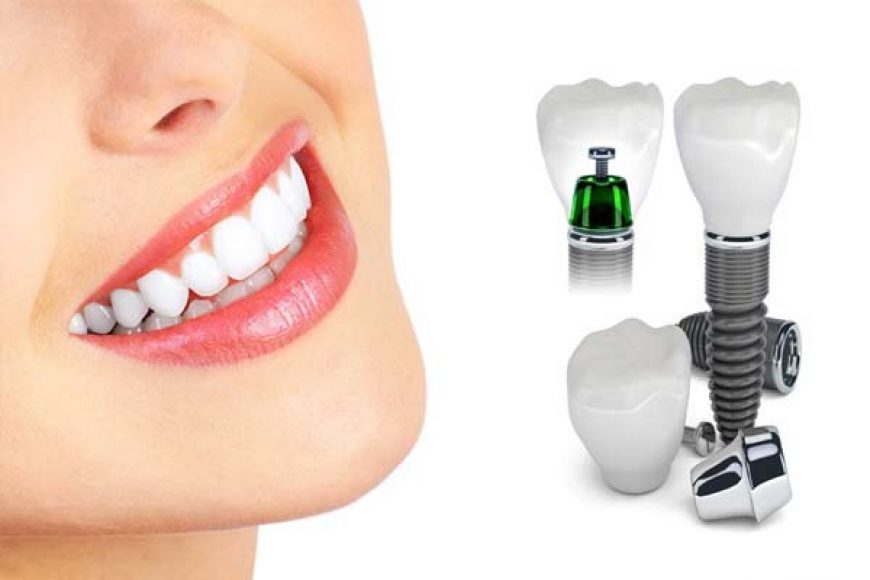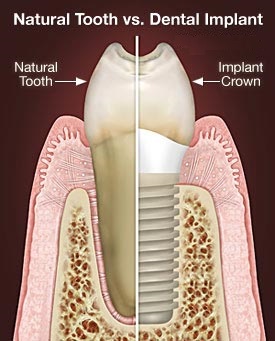Dental implants are replacement tooth roots. For many years, the only treatment options available for people with missing teeth were bridges and dentures. But, today, dental implants are available.
A dental implant provides several advantages over other tooth replacement options. In addition to looking and functioning like a natural tooth, a dental implant replaces a single tooth without sacrificing the health of neighboring teeth. The other common treatment for the loss of a single tooth, a tooth-supported fixed bridge, requires that adjacent teeth be ground down to support the cemented bridge.
There are many advantages to dental implants, including:
- Improved appearance
- Improved speech
- Improved comfort
- Easier eating
- Improved self-esteem
- Improved oral health
- Durability
- Convenience
In most cases, anyone healthy enough to undergo a routine dental extraction or oral surgery can be considered for a dental implant. Patients should have healthy gums and enough bone to hold the implant. They also must be committed to good oral hygiene and regular dental visits. Heavy smokers, people suffering from uncontrolled chronic disorders, such as diabetes or heart disease or patients who have had radiation therapy to the head/neck area need to be evaluated on an individual basis.
There are generally three phases to getting an implant:
- First, the dentist surgically places the implant into the jawbone. A small post made of titanium, is placed into the bone socket of the missing tooth
- Next, the bone around the implant heals in a process called osseointegration. . As the jawbone heals, it grows around the implanted metal post, anchoring it securely in the jaw. The healing process can take from six to 12 weeks. What makes an implant so strong is that the bone actually grows around it and holds it in place.
- Finally, it’s time for the placement of the artificial tooth/teeth.
Most people who have received dental implants say that there is very little discomfort involved in the procedure. Local anesthesia can be used during the procedure, and most patients report that implants involve less pain than a tooth extraction.
Most patients find that a dental implant is secure, stable and a good replacement for their own tooth. Success rates of dental implants vary, depending on where in the jaw the implants are placed but, in general, dental implants have a success rate of up to 98%. With proper care, implants can last a lifetime. Dental implants require the same care as real teeth, including brushing, flossing, rinsing with an antibacterial mouthwash, and regular dental check-ups.



